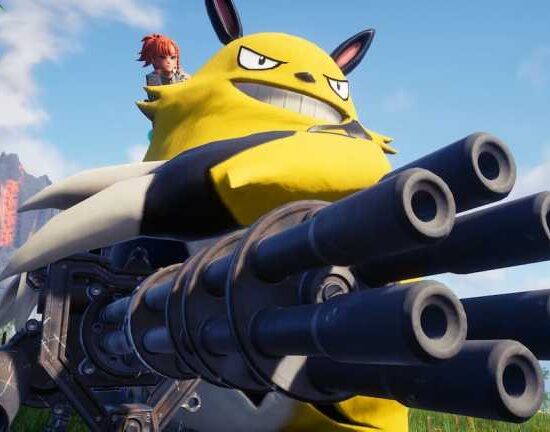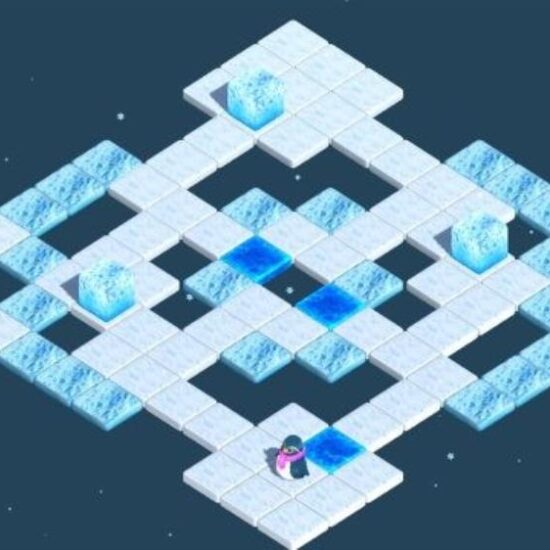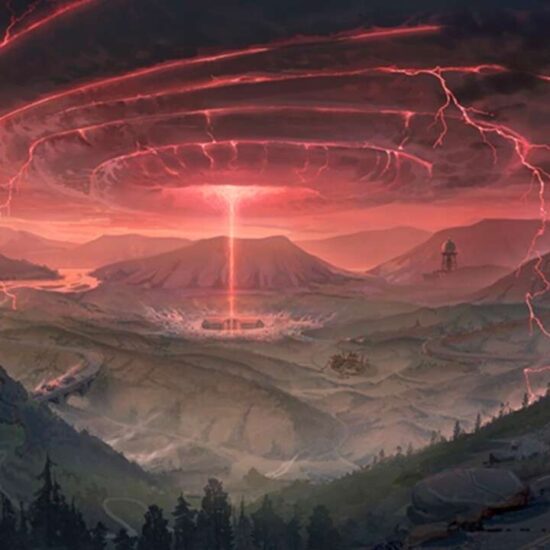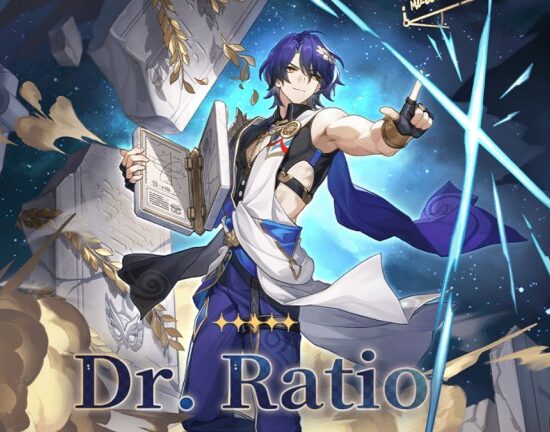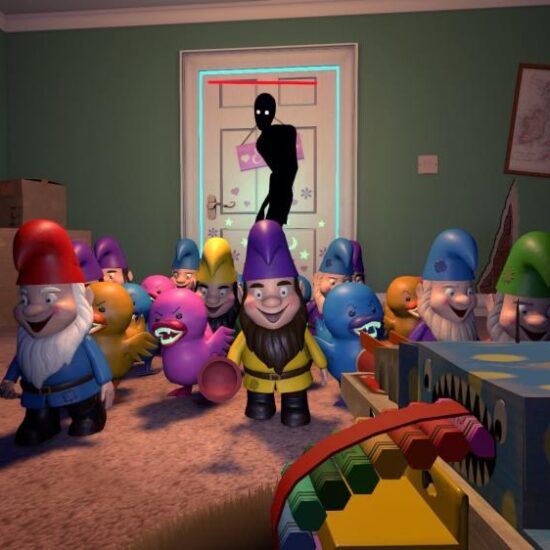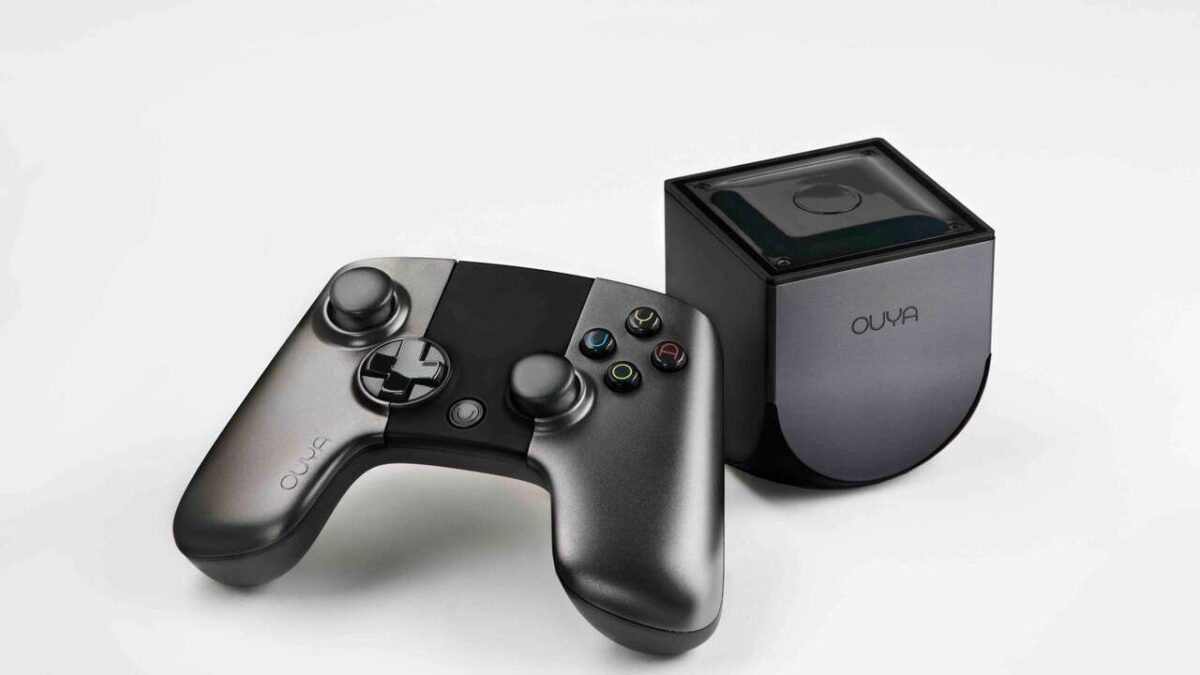
The Ouya is celebrating its 10-year anniversary today, June 25, 2023. Below, we look at its legacy as a system that endeavored to crack into a market with an atypical approach.
Like many failed console projects, the Ouya was both ahead of and behind the times. Released 10 years ago today, the Ouya was an independently developed console, funded, in part, by a massive Kickstarter campaign. Questions, criticisms, and concerns abounded, but there was also excitement at the possibility space such a console would create. What could an independent-focused console and development community create?
The Ouya was a $99 micro-console, built with Android architecture. The pitch was in the low-price point and the fact that every console shipped was also a dev kit. Anyone with some technical knowhow could begin developing games for the platform. The console promised to have accessible developer tools, a library of exclusive indies, and to bridge the mobile and console worlds.
Before it was even out, academic Ian Bogost argued that the appeal of the Ouya is not in the literal box, but in “the entertainment value of expressing your support for such a hypothetical console… the pleasure of participating in hypothetical disruption is sufficient.” Indeed when the Ouya released, the reception was lukewarm. The console flailed, was acquired by Razer, and died a slow death. Much of the eulogizing around the Ouya is about how it failed, moving from one of the most-funded Kickstarter campaigns ever to being frequently forgotten–and overshadowed by future, larger Kickstarter projects. In some sense, Bogost was right. The Ouya collapsed because its purpose had already been served before the point of sale.
Even watching the original Kickstarter video, the Ouya’s pitch is grand. Industry disruption, mobile games on the big screen, enabling small developers to play with the big boys. The future is here; it’s in this little box. The original Ouya packaging even came with inserts bearing slogans like “and so begins the revolution” or “thank you for believing.”
However, the Ouya’s strength was in its smallness. The grand vision of its creators of disruption never came true, but they did succeed at building a fairly affordable, open-source space for strange creations. In a warm and funny piece for the now-defunct Killscreen, Zack Kotzer argued that Ouya is a fantastic purveyor of games to play while you’re high. He points to rain simulators, surreal sails through void seas, absurd valet parking sims–games that don’t need to be everything because they are something.
Even the Ouya’s clearest success, the multiplayer fighter Towerfall, is an example of that smallness. The most-cited complaint at the game’s launch was its lack of online multiplayer, a complaint I both understand and feel misses the mark. Towerfall is a game made for close calls, shouting at the television, and hearing the laughter fill a room. A multiplayer lobby with the right set of players can capture this feeling, but online multiplayer can create distance. Towerfall’s strength is in frenzied obsession over a weekend and an occasional match over the following years. Unlike practically every major multiplayer game on the market now, Towerfall cannot make the presumption to take over your life. It is small by definition, much like the Ouya itself.
Although the Ouya allowed truly small stuff on its platform and created a number of development tutorials, its pitch aimed slightly higher. Shortly after the console launched, the Ouya team opened a $1 million funding campaign. Kickstarted indies could get their money matched dollar-for-dollar by Ouya in exchange for a six-month timed-exclusivity contract. The policy was controversial, as some developers were accused of artificially boosting their Kickstarters to gain access to the promised funds. The policy received changes based on developer feedback. It also showed the scale of Ouya’s ambitions. Indie hits a la Super Meat Boy or even Towerfall were the name of the game. The ever smaller games that crowded the corners of Ouya’s shop received less institutional support. Kotzer wrote, “better anarchy than antiquity,” a warning that has become a prophecy.
Even more unfortunately, the Ouya was something of a closed ecosystem. When it was announced that its online ecosystem would be shutting down, preservationists rushed to save the games that the lack of official support would leave behind. The Ouya fared a little better in this because it was built on Android architecture, which is hardly a niche or locked environment (unlike Dreams or Game Builder Garage or Mario Maker). But it’s not as if nothing was lost or abandoned in its collapse.
Weirdly enough, it’s the personal computer that has taken the place the Ouya attempted to claim. Portable PCs like the Steam Deck and the ROG Ally are relatively easy to develop for. More people than ever have a laptop or PC for school or work. The website and desktop client Itch.io, which launched just months before the Ouya, is now the best way for anyone to publish their games, participate in a game jam, or just soak in the strange and broken and wonderful (yes, even while high). The cultural forces that shaped the Ouya, and those it helped shape, are still with us.
One of the differences is that a personal computer, even a cheap one, can be significantly more expensive than the Ouya was–or even than it still is. You can now pick up an Ouya on eBay for anywhere from $50 to $200. Another difference is that basically every kind of personal computer, with some notable exceptions, comes from massive hardware companies. The Ouya got institutional support but was also, in theory, an independent console. It’s worth remembering, too, that the Steam Deck is the latest, most successful chapter in a long line of Valve’s attempts to break into hardware manufacturing. With its truly ungodly amounts of money, Valve can afford to lose over and over again until it finds a hit. The Ouya could not. The exact vision of a truly independent game console is further away than ever. Even successors like the Playdate are more niche than the Ouya ever pitched itself to be.
Video games are an often unsustainable industry. From environmental impact to working conditions to the scale of big-budget projects, the industry cannot just scale upward forever, no matter the ambitions of CEOs and studio heads. The Ouya’s central failure was perhaps its ambition, the scale it attempted to reach. Its success was perhaps building a model for a different kind of gaming ecosystem. The Ouya is far from the only small console with big dreams to be consigned to the dustbin of history. But like all those other consoles, the Ouya points at alternate histories and alternate futures. You can now hack your Ouya to connect it to a new, community-run server to download and play games. After all its history, it remains small, independent, and alive. I only wish more people could participate in that.
The products discussed here were independently chosen by our editors.
GameSpot may get a share of the revenue if you buy anything featured on our site.









